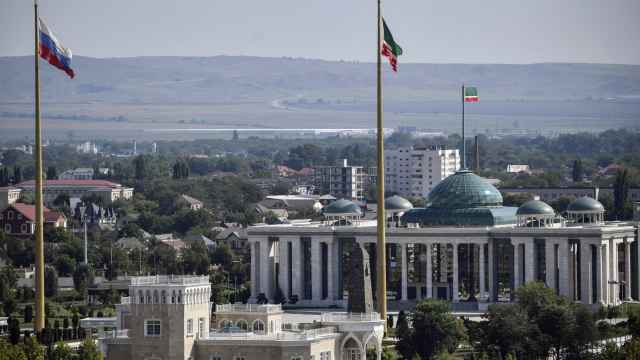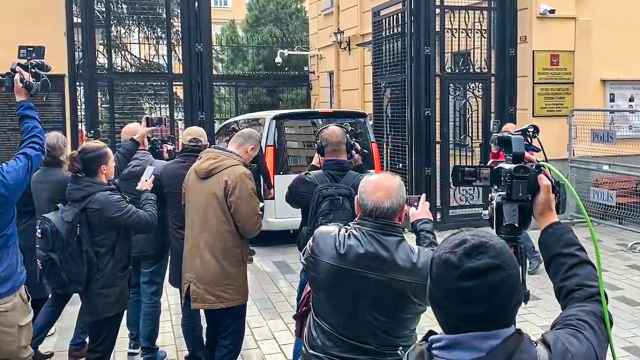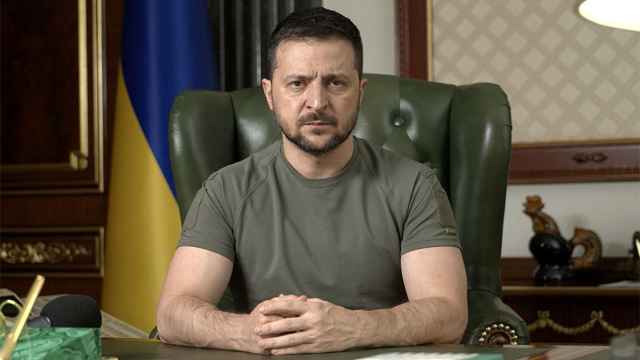Public television will be established in Russia any day now. The only person who knows the details of this station — which is supposed to be independent from political pressure — is President Dmitry Medvedev. But that hasn't stopped a storm of speculation.
On March 22, the State Duma Culture Committee held its first discussion on public television, and subsequent media reports focused largely on harsh comments by the committee's chairman, Stanislav Govorukhin, who also headed Vladimir Putin's recent presidential campaign. "I am increasingly convinced that public television is not only unnecessary but harmful and expensive," Govorukhin said. "One channel will not change anything. The other channels must be straightened out first."
In response, an unidentified Kremlin official was quoted in media reports as saying, "Individual Duma deputies have stated their opinions, but that has no impact on the decision-making process." Apparently, a draft of the decree on public television lay on the president's desk that same day.
Also on March 22, conservative television host Maxim Shevchenko published an entry on his Ekho Moskvy radio blog under the heading "This Is How Public Television Will Look." It presents the results of a vote among unspecified agencies for candidates to sit on a public television board of trustees. First place went to liberals and opposition leaders such as Dmitry Bykov and former Soviet leader Mikhail Gorbachev.
All of the next day, Shevchenko's list was discussed on Ekho Moskvy programs and blogs. That evening, presidential spokeswoman Natalya Timakova dismissed the "speculation."
"The president's order to create public television has not been signed," she said. "That is the document that will determine the method for forming the public council."
The next day, March 24, members of a working group commissioned to develop the concept of public television and headed by Mikhail Fedotov, chairman of the presidential council on human rights, announced on Ekho Moskvy what I think was the first detailed explanation of the provisions and unresolved issues of the public television channel. The government will give an initial endowment of 30 billion rubles ($1 billion). Shevchenko's list is genuine, but it reflects only an experimental vote among their working group to determine approximate ratings. Fedotov explained that the president is free to determine the procedure for appointing the members himself.
The decree on public television will be signed by Medvedev soon, and it will reveal which channel will be allotted for its use, a member of another working group, formed by the IT and Communications Ministry, told the Public Chamber on Monday.
But the plan remains contentious, even among supporters of public TV. Television analyst Anna Kachkayeva told Moskovskiye Novosti: "Not a single idea has been fully developed. In order to prepare the public and the [television] industry, much more time is needed than the month and a half for discussions that was given to us. … It seems strange that a presidential decree will be made and not a law because the rest of the world has laws regulating public TV."
So much has changed in Russia over the past 20 years. This country has had three very different presidents: a democrat, an authoritarian and a modernizer. Moscow's streets have been the scene of tanks firing, ever greater traffic jams as an indirect result of economic stability and mass protests. But in all kinds of political weather, television and radio broadcasting has been regulated by presidential decrees, not laws.
Indeed, Russia and Belarus are the only two countries in Europe that do not have public television. Russia will soon leave that club.
Alexei Pankin is the editor of WAN-IFRA-GIPP Magazine for publishing business professionals.
A Message from The Moscow Times:
Dear readers,
We are facing unprecedented challenges. Russia's Prosecutor General's Office has designated The Moscow Times as an "undesirable" organization, criminalizing our work and putting our staff at risk of prosecution. This follows our earlier unjust labeling as a "foreign agent."
These actions are direct attempts to silence independent journalism in Russia. The authorities claim our work "discredits the decisions of the Russian leadership." We see things differently: we strive to provide accurate, unbiased reporting on Russia.
We, the journalists of The Moscow Times, refuse to be silenced. But to continue our work, we need your help.
Your support, no matter how small, makes a world of difference. If you can, please support us monthly starting from just $2. It's quick to set up, and every contribution makes a significant impact.
By supporting The Moscow Times, you're defending open, independent journalism in the face of repression. Thank you for standing with us.
Remind me later.





